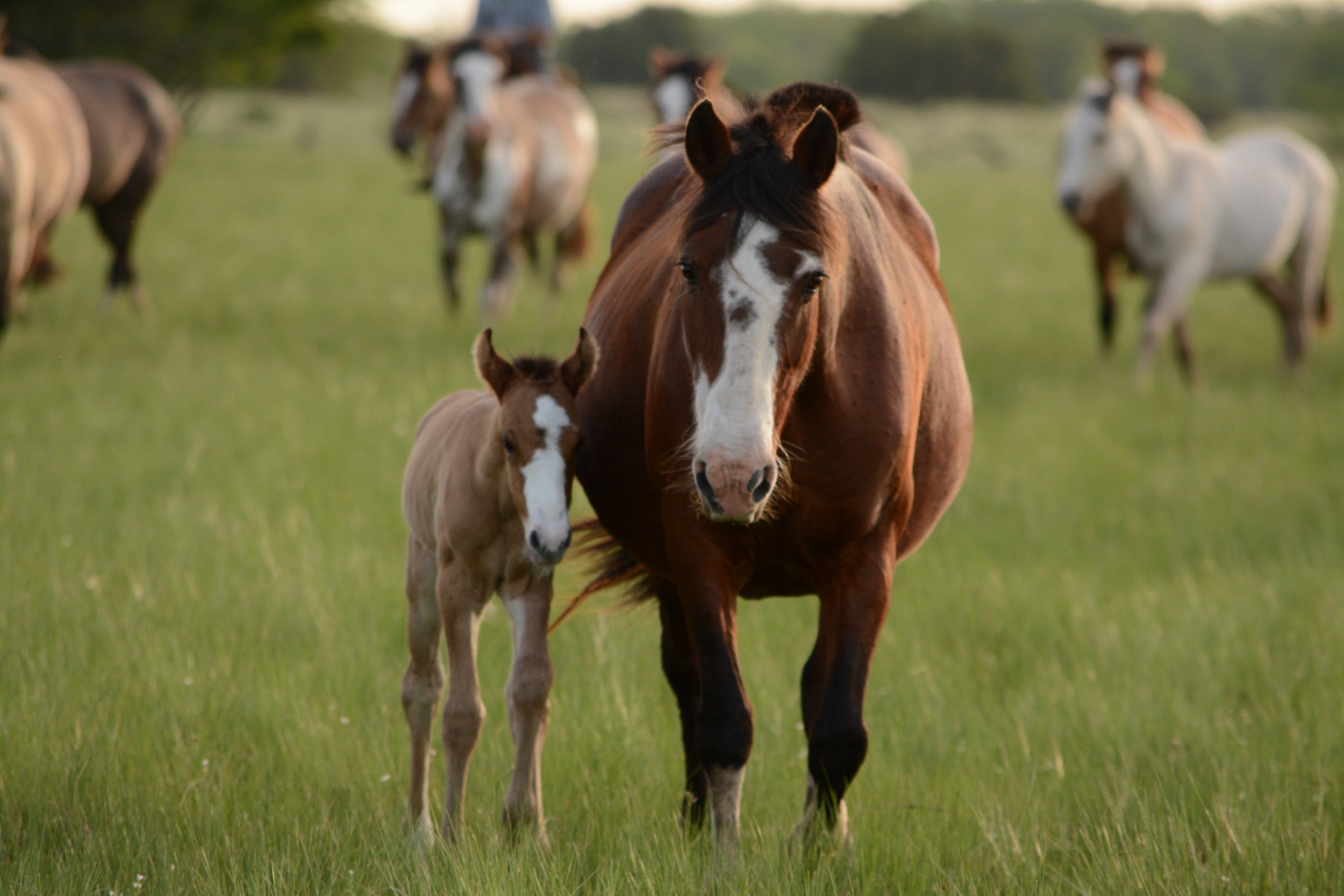
Broodmare Care
There are three different areas of care when it comes to our broodmares: Pre-Natal Care, Foaling and Post-Partum Care. Keep reading for more information of how to protect and allow your broodmares to flourish.
Pre-Natal Care
Housing
Keep mare isolated from transient populations and maintain plenty of exercise for her. Introduce the mare to foaling area five weeks before foaling. Foaling area should be clean, dry, well-ventilated and quiet. The size of the stall should be at least 12’ x 12’. Straw bedding is the best to use for a mare and foal.
Immunization and Deworming
Vaccinate the mare with Pneumabort-K during the 3rd, 5th, 7th and 9th months of pregnancy.
Run a fecal test when the mare is bred to determine parasite burden and deworm accordingly.
Booster mare for all regular vaccinations 1 month before foal is due: East West Tetanus, Influenza, Rabies, West Nile and Potomac Horse Fever. (Vaccinate for strangles if there is a herd problem)
Nutrition
Avoid overfeeding mares. Regular maintenance diet first 2/3 of pregnancy (first 8 months). In the last 3 months of pregnancy and lactation, increase grain protein level (use 12 to 14% protein grain). Be careful not to increase total pounds of feed during the last 3 months. Feed good quality hay and have free access to salt and water.
Foaling
Keep area quiet.
Wash perineum and udder.
Open caslicks (if mare has caslicks)-ideally do this ~2-4 weeks before foaling date.
If active foaling is greater than 30 minutes without progress, call veterinarian.
Post-Partum Care
Foal
-Clean airways (nostrils and mouth of mucus)
-Allow foal to remain attached via umbilicus to receive blood from mare until mare stands and breaks cord
-Once broken, dip navel with gentle iodine (repeat if navel remains moist)
-Be sure foal suckles within 2-3 hours of birth
-Give foal enema
-Make sure to have a newborn foal examined by a veterinarian at 12-48 hours of life and a blood test for failure of passive transfer through colostrum.
Mare
-Check udder for mastitis
-Collect and save placenta (should be expelled within 3 hours of birth). A retained placenta is a medical emergency and the mare must be seen by a veterinarian if the placenta is not passed within 8 hours.
-Administer Oxytocin (2cc IM) if mare does not pass placenta within 2 hours. Repeat Oxytocin every ½ hour until placenta has passed. Tie hanging placenta in a knot (hock high) so mare does not step on and tear.
-Deworm mare 24 hours after foaling
-Start mare on Equishine or Essential K (vitamin and mineral supplement) if not already on it.


